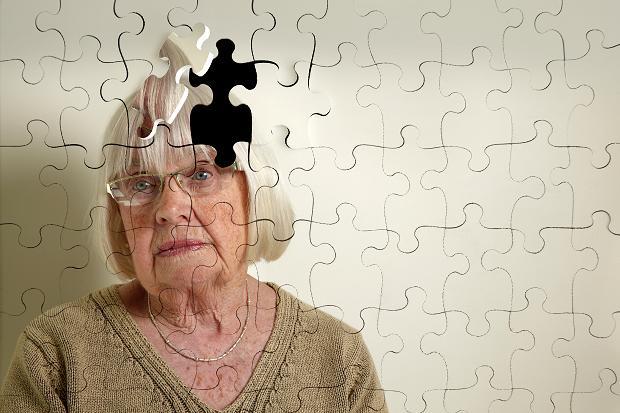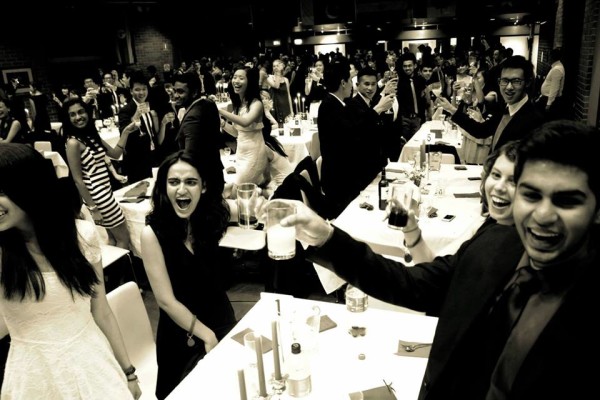The scents of antiseptic and talcum powder mingle in the air to create the least inviting smell upon stepping into the ward. This place – I refuse to call it your home – has me so torn. Perhaps it’s a refusal to accept your condition, or perhaps its frustration at myself for how seldom I manage to visit. It still aches when I think that you began to recognize Liz, Donna or even Ashleigh, who only started six months ago, more readily than me.
“You’re looking good today.” I smile softly as I replace the dying flowers on your table with a new bouquet. I never understood bringing someone flowers until I saw the difference they made to this melancholy room. Against the dim lighting, protruding above the different bottles of medicated lotions and swabs, the colourful petals almost seem to glow. I always try to buy you flowers that you once grew in your garden, reminiscing on the summer afternoons not so long ago when I’d struggle to help you carry that large, khaki watering can. How strange to look at this fragile body, complete with bedsores and flaky scalp, that’s replaced the far more suitable, robust one that was stolen from you. How god-awful to think that now a shave and even the slightest hint of pink in your face merit a compliment as to the state of your appearance. I catch myself short of sighing, reminding myself of the promise I made myself to never allow you to feel as though visiting was a chore.
“How do you feel today? Shall we go see the fish?” Your initial confused stare was quickly replaced by your best attempt at a smile. “Let’s get your shoes on then.”
I keep my steps small and slow, placing each foot barely ten centimetres in front of the other, to match the pace you’ve been reduced to. Your smile when we finally arrive at the fish-tank immediately lifts my mood. I watch you lift your thin finger, shaking from the effort, following the goldfish across the length of the tank. Within minutes, you’ve gone to sit by the fire and fall asleep completely. You’re exhausted. I can’t help but note how unlike you it is to be tired already. I’d do anything to rid you of this damn disease.
I don’t remember the last time I saw Dad cry. Perhaps I was too young at the time to take note, or perhaps I’d never had the experience previously. Either way, it allowed a younger me to paint Dad as a tough, mature man, able to come to terms with the circumstances of life without experiencing any large emotional distress. Of course, during this period, I still equated not crying to being strong (but perhaps that’s indicative of a failure in our society and educational systems as well as my naiveté). This also meant that seeing Dad cry as you yelled about never having had a son felt like having every award, trophy or medal I’d ever received destroyed in front of my eyes.
Dads face became a contorted, twitching mess, comparable to the play-doh moulds we’d create during our Kindergarten years. He was fighting back tears, but as much as he tried to hide his hurt, his shattered spirit was an open picture book.
It was the first time I’d witnessed a vulnerable version of my father.
“Happy Anniversary, Love.” Nana’s gentle voice fills every corner of the room with such warmth as she enters, the grandkids trailing behind her, to give you a kiss.
I immediately know it’s a good day. Your eyes are wide. You’re lifting your arm to give Nana a hug.
You remember.
Relief floods the room. We’d all realised how much of a wreck Nana would’ve been had you not known who she was or how much celebrating today meant to her. I can’t imagine 53 years with anyone being a walk in the park, much less having to brave the myriad of medical issues you’ve suffered through.
The taxi arrives and your wheelchair is fastened in. You’re wearing the same frightened excitement young children do at the front of the line for a rollercoaster. I look at Nan, who’s watching you. I admire the love and patience she’s shown you through everything. The days she’s made the trip and arrived to find you fast asleep, or the times when you’ve denied your relationship, or the conversations cut short by a memory of the war gripping you with anxiety – in those moments, she’s only ever cried out at the world as to the injustice of your circumstances. If anything, every visit, Nana teaches me how to love.
Despite the ache in her hips from her recent operation, she journeys down, changing buses and walking more than she should, because she worries otherwise you’d think she abandoned you or got bored of visiting. Regardless of whether anyone accompanies her, the outstanding chores for her to complete or invitations to drop by a friend’s house for tea, she’d always choose to spend her day by your bed, holding your hand and telling you how quiet the house is without you around, how much she wishes you could be living at home so she didn’t have to miss you in between visits. I sometimes wonder how she’ll ever be okay again if you leave us.
“Come on Pop, one more spoonful? Please, for me?”
Glancing at your plate, it’s unapparent you’ve eaten anything at all. How can I blame you though? It’s merely unappetising mush. I chuckle to myself over the ridiculous notion of trying to feed you a well balanced meal, without any added sugars or salts: multicoloured, flavourless puree.
Nan glances over at me, gently inquiring “what is it, love?”
“I think I’ll try him with some ice-cream instead, if that’s alright with you Nana.” It wasn’t really a question. I knew she’d want Pops to find some sense of enjoyment, even if only in a small bowl of dessert. At this stage, worrying about the sugars or saturated fat was out of our concern. Besides, if he were to eat anything, that’d be a successful day and we both knew it.
Even the smallest change: your skin sagging a little more, or becoming slightly more translucent, your scalp beginning to flake, your weight dropping by even half a kilo, or another bedsore on your back, causes me to grimace and begin to count days. Perhaps this is why Nana always tells me to die young.
I wonder when your body gives out, if Nana will be able to cope with the emptiness. I’m torn at the realisation but it’s true that you consume her life; she’s dedicated every day to taking care of you, in some manner. Sometimes I even worry that she’s forgotten how to care for herself. Honestly, I worry about Nana more often than not. All she’s known is caring for people: her mother, dad and his brother, her sister – and now you.
I wonder where she’ll invest her time. I wonder how she’ll react – hell, how any of us will: when we meet someone by the same name or someone who uses the same slang, the words ringing with that same Yorkshire accent. I wonder if we’ll still employ the same nicknames for each other: the ones you christened us with as you mocked us over dinner.
I wonder to the point where I’m overcome with guilt imagining that you’re already gone.
You’ve been choking on your own coughs since I came in. It’s as though you don’t have the strength to fight back anymore. I see your hand shaking uncontrollably, as though it were the needle of a Richter scale during the 2004 earthquake in Southeast Asia. I count the ever increasing liver spots along your arms. I sneak a peek at your charts, the weight slowly dropping. Worst of all, I hear your frantic yells: memories of the war plaguing your sleep yet again.
At least the disease waited until after Christmas to strike.
It’s the first funeral I’m attending in English, making it all the more real. Perhaps, too, it was a result of my being much older. Supposedly, I was more able to process death, but I call bullshit – because the older you are, the more memories you retain, and the more those memories can plague your mind like a locust trapped and buzzing in your brain.
Besides the memories are the thousand thoughts like a cloud of smoke, ebbing and weaving into every crack: Do they think that their condolences make it any easier? Why didn’t I visit more often? He doesn’t even look like Pops lying in that tiny coffin. Why did someone so kind and selfless have to suffer such a god-awful disease? I hate that damn disease. I hate that stupid disease.


